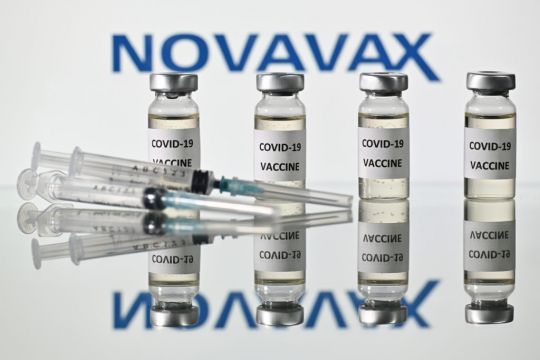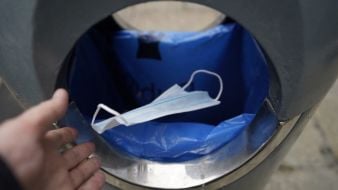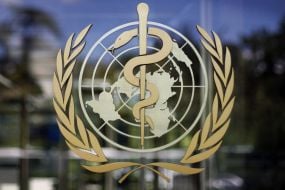Novavax has told the European Union it plans to begin delivering its Covid-19 vaccine to the bloc towards the end of this year, new guidance that could lead to a formal contract being signed as early as this week, an EU official told Reuters.
A deal would see Novavax supply a total of up to 200 million doses of the vaccine, providing the EU with booster shots to help contain the coronavirus and potentially guard against new variants, according to the official, who has direct knowledge of the discussions.
Novavax reached a preliminary deal with the bloc in December, but a final agreement has been delayed because the US company has struggled to source some raw materials, Reuters reported in March.
The EU official, who declined to be identified because the matter is confidential, said Novavax still had production problems, but what had changed is that "now they have a delivery schedule".
Novavax told the EU in meetings over the last two weeks that it planned to send the first small shipments towards the end of this year, with the bulk to be delivered in 2022, according to the official, who said the shots would complement a huge planned supply of vaccines from Pfizer and BioNTech.
A spokesman for the EU Commission, which co-leads talks with vaccine makers together with governments of the 27-nation bloc, declined to comment because the matter is confidential.
Novavax said its negotiations with the EU were continuing. It declined to comment about the deliveries timeline, production problems or whether a formal deal was imminent.
Regardless of a possible deal, the EU's purchases remain conditional on the regulatory approval of the Novavax vaccine, which has been assessed under a rolling review by the European Medicines Agency (EMA) since February.
The EMA has not set a date for its decision on the vaccine, which has not yet been approved anywhere in the world.
Pfizer alternative
The European Commission has repeatedly expressed confidence that it has secured enough doses to reach its goal of vaccinating at least 70 per cent of its adult population by the end of July. The World Health Organisation says about 70 per cent of a population needs to be immunised to break transmission.
The EU is therefore now making plans for the coming years, to make sure the bloc will have enough boosters if they are needed to help keep Covid-19 in check and fight variants.
As part of this strategy the EU has already pencilled a huge deal with Pfizer-BioNTech for the supply of up to 1.8 billion doses of their vaccine in 2022 and 2023, the largest contract ever signed worldwide with a maker of Covid-19 shots.
Novavax's protein-based vaccine represents an "alternative or a complement" to the mRNA shot produced by Pfizer, the EU official said, although it will be available in much smaller amounts. Of the 200 million doses planned, half are optional and can be bought by the EU at a later date if desired.
"We will certainly add other potential vaccines, for example protein-based vaccines have also quite a potential," European Commission chief Ursula von der Leyen said in late April when she announced the deal with Pfizer was about to be signed.
French drugmaker Sanofi, in partnership with British firm GlaxoSmithKline, is also trying to produce a protein-based Covid-19 vaccine and has already signed a supply deal with the EU. However, their trials suffered a setback in December, delaying development.







